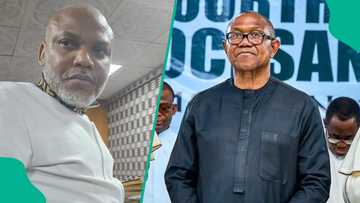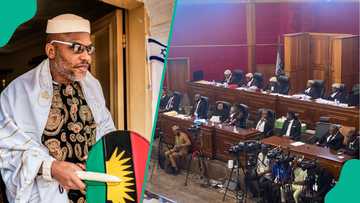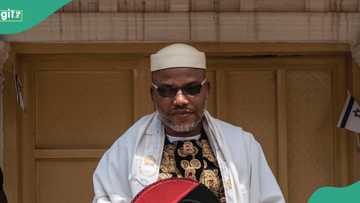Any “Thank You” for His Lordship, Justice Omotosho?
Editor’s note: In this piece, David Bassey Antia looks at Justice Omotosho’s handling of Nnamdi Kanu’s trial and the challenges of dispensing justice under pressure. The legal thinker uncovers the courage and fairness behind the verdict.
I was listening to Oliver De Coque’s classic "Identity" when I opened the 144-page judgment of the Federal High Court in which Nnamdi Kanu was convicted of terrorism-related offences. In that masterful display of lyrical depth and guitar virtuosity, Oliver De Coque interrogates the essence of identity. A portion of the lyrics reads:
“When I wake up in the morning, I go pray to my God; when I come back in the evening, I go pray to my God… Always believe in trying. Nothing comes for nothing. Always do my best and leave the rest for God.”
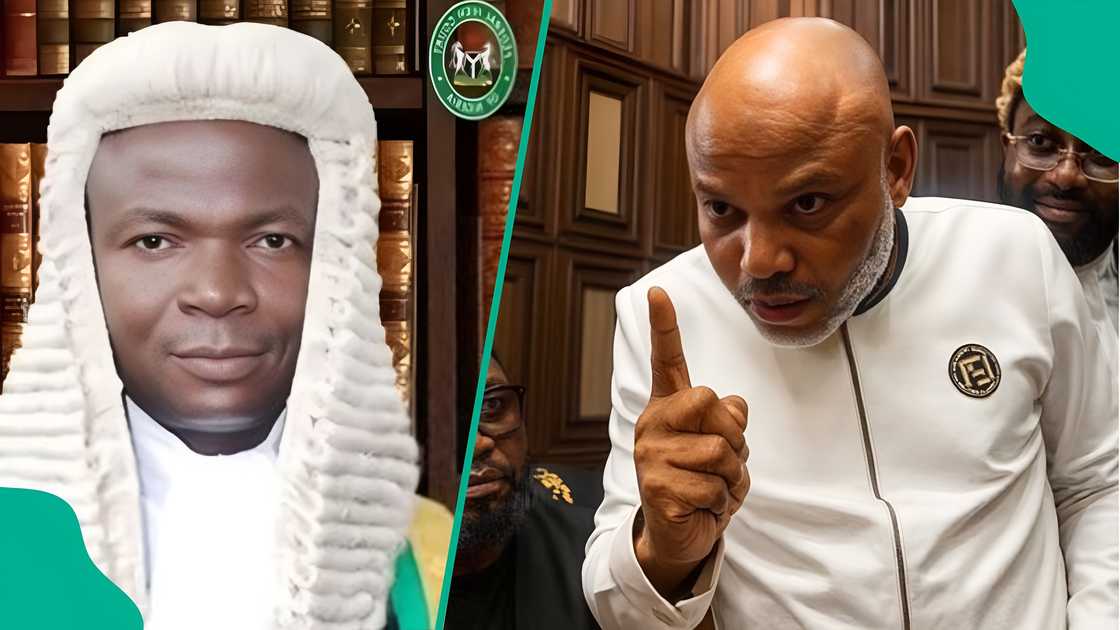
Source: Twitter
At the risk of revealing my sentiments prematurely, may I respectfully invite His Lordship, Justice Omotosho, to embrace that last admonition— "do your best and leave the rest for God". Having exhausted every judicial avenue to persuade Nnamdi Kanu to retain legal representation and to meaningfully participate in his trial, His Lordship did all that any conscientious judge is duty-bound to do. It was justice administered virtute officii.
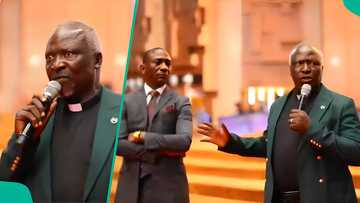
Read also
Video: Rev Ezekiel Dachomo visits Dunamis church, calls for prayers amid alleged Christian genocide
While Kanu’s supporters chanted, danced, and issued sporadic press briefings, often marked more by incendiary rhetoric than legal precision, the cause of justice stood quietly, awaiting release. My Lord, you are both judge and human; you left your home praying for divine wisdom to dispense justice, and you returned having discharged your constitutional oath without fear or favour. That is your identity - an impartial, un-intimidated judicial officer.
Most Nigerians are already familiar with the facts of this case, but for context: Nnamdi Kanu, leader of the Indigenous People of Biafra (IPOB), faced a seven-count charge centred on acts of terrorism against the Federal Republic of Nigeria. The prosecution alleged that through broadcasts received in Nigeria, he issued threats capable of intimidating the population, declaring that “people will die and the world will stand still.”
The Court found, inter alia, that Kanu ordered an attack on the Owerri Correctional Centre. He directed IPOB members to kill security operatives. Investigations revealed that he instructed IPOB members to bury one “Ikonso” using about 2,000 human heads. They were only able to procure 30. Security operatives discovered IPOB members with human heads hanging from wire mesh and others consuming human flesh for “spiritual fortification. A well was located containing behèadèd bodies. Between 170 and 200 security personnel were killed.
Notably, Kanu did not deny making the broadcasts through which many of these violent directives were issued.
Rather than rebut the substantive allegations, Kanu claimed he was denied adequate facilities for his defence. He alleged that DSS officials eavesdropped on his consultations with counsel—yet tendered no shred of evidence to support that claim. In the interest of justice, His Lordship granted him a special consultation day (22 October 2025), ordered unrestricted access for his legal consultants, and even cleared the courtroom of DSS officers to create privacy.
Still unsatisfied, Kanu accused the Court of ignorance of the law.
Kanu’s primary jurisdictional plank was that his alleged extraordinary rendition from Kenya divested the Court of competence. His Lordship rejected this - correctly so- reiterating the established principle that the manner of a defendant’s arrest or return does not invalidate an otherwise competent criminal proceeding.
Section 14 of the Evidence Act, 2011 is instructive: illegally obtained evidence is admissible if its probative value outweighs the manner of procurement. This guided my own expectation, and indeed the Court’s reasoning aligned with that logic.
His Lordship’s reference to the U.S. Ker-Frisbie doctrine was apt. In Ker v. Illinois and Frisbie v. Collins, the U.S. Supreme Court held that forcible abduction does not bar trial where the court otherwise has jurisdiction.
Kanu’s reliance on the 13 October 2022 decision of the Court of Appeal was misleading. His lawyers trumpet that judgment, but conveniently ignore that the Supreme Court, on 15 December 2023, emphatically overruled it. The apex Court held that questions of rendition relate to procedure, not jurisdiction, and that no international treaty can fetter jurisdiction constitutionally vested in a court of record.
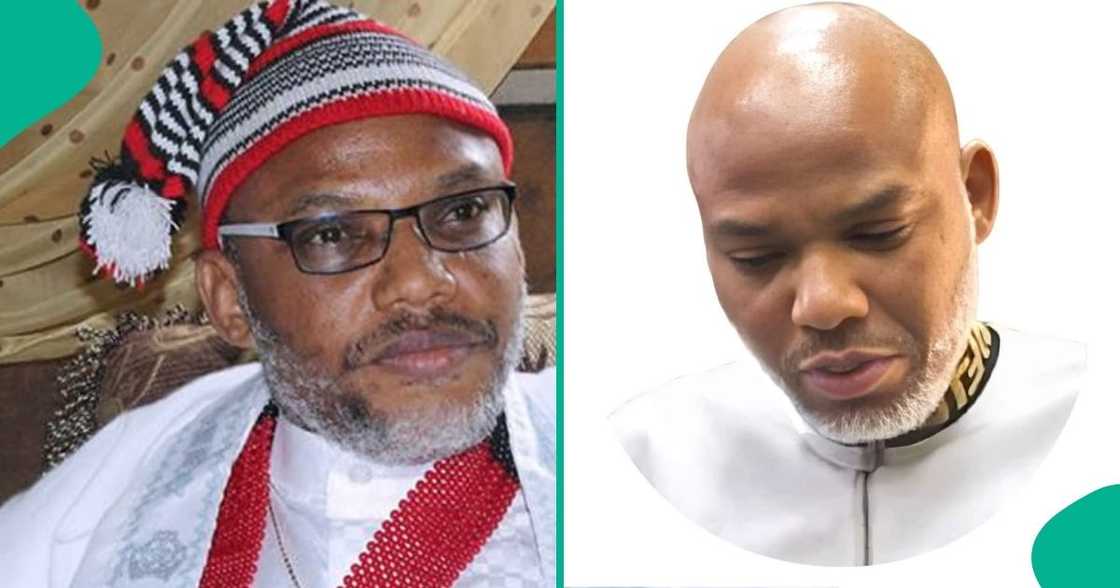
Source: Twitter
The proper remedy for such violations lies in civil or fundamental rights actions—remedies which Kanu has already pursued in Kenya, where monetary damages were awarded to him.
To insist on terminating his trial, after benefiting from those remedies, would be an unjust enrichment His Lordship rightly rejected.
Kanu further argued that the charges against him were incompetent because they were brought under the repealed Terrorism Prevention Act, 2013. While Section 36(12) of the Constitution requires that an offence exist at the time of commission, His Lordship rightly directed attention to Section 98(3) of the Terrorism Prevention Act, 2022 provides that Pending proceedings, charges, and causes of action under the 2013 Act shall continue under the new Act.

Read also
Nnamdi Kanu: “See the script” Prince Eke predicts what will be done with IPOB leader before 2027
A simple reading would have spared the defence this misguided argument.
His Lordship, in a gesture of judicial magnanimity, pleaded with Kanu to enter his defence. The Court stated:
“As a minister in the temple of justice, passionate about justice, and as an apostle of Jesus Christ, I begged the defendant passionately and severally to put his defence, but the defendant was obstinate… The effect is that the defendant has decided to rest his case on the prosecution.”
What more could the Court have done? Abandon its duty under intimidation? Certainly not.
Predictably, the social media echo chambers, our notorious factories of smùt and misinformation, have unleashed torrents of invective at His Lordship. Their bile, however, is inconsequential when placed side by side with the cries of the families of victims, many of them Igbo, whose loved ones were maìmèd or killed under IPOB’s violent incursions.
These families are grateful. They know justice when they see it.
And so, I return to my earlier question:
Is there any “thank you” for His Lordship, Justice Omotosho?
For discharging his duty without fear, favour, affection, or ill-will?
For upholding the law despite intimidation?
For demonstrating that judicial courage remains alive in Nigeria?
There should be. And there must be.
David Bassey Antia writes from the Faculty of Law, Topfaith University, Mkpatak, Akwa Ibom State and can be reached via Antiadavid3@gmail.com
Disclaimer: The views and opinions expressed here are those of the author and do not necessarily reflect the official policy or position of Legit.ng.
Source: Legit.ng

